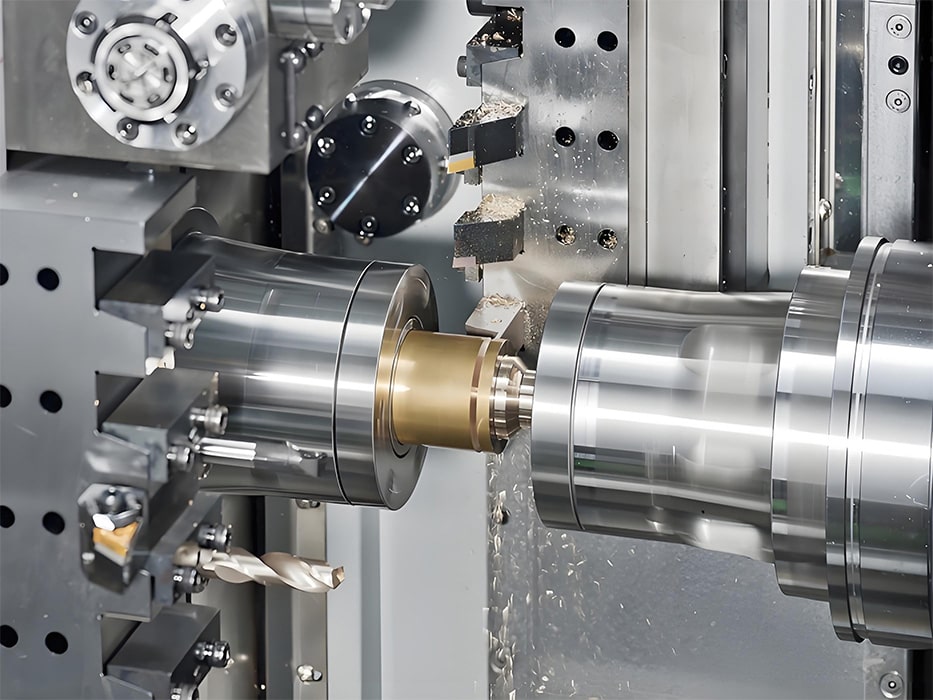CNC Machining: Revolutionizing Fashionable Manufacturing
CNC machining is one of the most transformative technologies in the modern world of manufacturing. It has fundamentally changed how companies make components and parts that offer a degree of precision, efficiency and a range of applications that are not comparable to traditional techniques. CNC machines use computerized controls and machines to carry out various jobs like cutting, drilling, milling, and grinding on everything between plastics and metallics, as well as wood and composites. Through automation of the process, CNC machining eliminates many of the errors and inconsistencies associated with manual operations. As a result, you get a system which produces high-quality parts in a faster pace as well as with more consistency, stimulating innovation in industries ranging such as aerospace and consumer electronics.
One of the main advantages of CNC machining is the unbeatable accuracy and capability to create intricate designs. Unlike manual machining, where the operator is required to physically manage it, CNC machines adhere to specific instructions that cut, shape, and form the materials with astonishing precision. This reduces the margin of error by a significant amount, and allows for the production of parts that meet the exact specifications. complex geometries, precise specifics, and tight tolerances can all be achieved with CNC cutting, making it ideal for industries which require the highest standards of accuracy, such as aerospace, where even tiny variations in the parts could have devastating effects.
Apart from its high-precision, CNC machining is also known for its efficiency and value. The traditional machining techniques typically require skilled technicians to manually alter and manage the machine this can become time-consuming and costly. CNC machining eliminates much of the manual labour that is required for production since machines operate completely autonomously over long time periods after they have been installed. This allows manufacturers to increase production without needing to invest in additional workers or other resources. In addition, CNC machines are capable of performing a variety of operations with a single machine and thereby reducing the necessity for repositioning and part transfers to save time, and reduces the chance of making mistakes. Automation results in faster production cycles and lower costs per unit, making CNC machines a desirable alternative for companies trying to optimize their processes for manufacturing.

One of the main benefits of CNC milling services is its efficiency. In automatizing the process of machining, manufacturers can significantly reduce the amount of time needed for the production of parts, leading to a faster cycle of production as well as cost savings. Because CNC machines operate all day long with no human oversight it is possible to increase production but without degrading the quality. This level of automation also minimizes the risk of human error and ensures the quality of each piece produced is in line with the exact specifications outlined by the computer-generated layout. Further, CNC machining allows for “lights-out” manufacturing, where machines are still in operation even when workers are gone which increases productivity while cutting down on labor costs.
In addition to speed and precision, CNC machining is valued for its cost-effectiveness, especially for large-scale production runs. Once the initial setup and programming of the machine are completed production of additional parts require little input and can reduce overall production costs. For manufacturers working with expensive metals like aerospace grade alloys, CNC is a method of reducing waste by making the cutting process more efficient and ensuring that every part produces with little loss of materials. Its precision and efficacy ensure that CNC the ideal tool to both prototypes and large-scale production since it permits companies to rapidly test the designs and then refine them and keep production costs in check.
The environmental impact on the environment CNC machine is a different aspect that is worth thinking about. While traditional manufacturing methods often produce a large amount of waste, CNC machines are renowned for their material efficiency. In order to precisely cut and shape material, CNC machining minimizes waste, reducing both material costs as well as environmental impacts. Furthermore, the automated nature of CNC machines helps reduce energy use when compared with manual processes. Modern CNC machines are also designed to be sustainable, using energy-efficient motors and systems for further reducing their carbon footprint. This makes CNC manufacturing an environmentally-friendly solution for those who want to reduce waste and conserve resources.